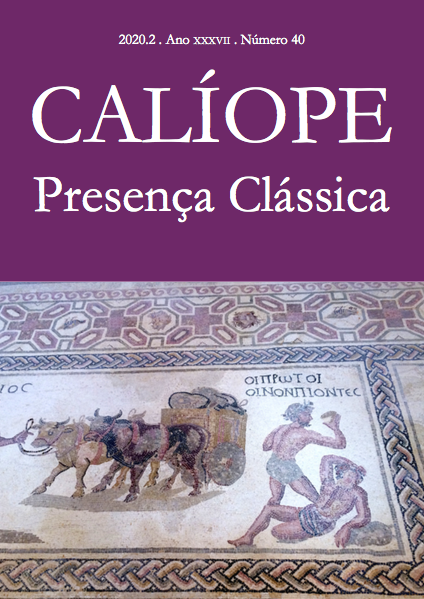Creon’s Anger during and after the Third Act of Antigone: an Aristotelian Reading of a Tyrant’s Emotion
DOI :
https://doi.org/10.17074/cpc.v1i40.37517Mots-clés :
Creon’s anger, Antigone, Sophocles, emotional response, thymetic akrasia, AristotleRésumé
Particularly in Creon’s debate with Haemon, and from then on, Sophocles shows distinct aspects of how anger acts on the tyrant’s ability to judge and how this can be related to inextricable familial and political ties. As every modern reading of the play applies a philosophical conceptualization to understand emotions and thus suffer the consequences of a historical gap between interpretative and original vocabularies, this paper argues that the Aristotelian conceptualization of emotions is a relevant philosophical tool to better contextualize Creon’s anger in Sophocles’ Antigone. The essay discusses Creon’s thymetic responses in the face of Haemon’s admonition and Antigone’s oligoria, and offers two examples of Aristotelian readings of Creon’s thymetic akrasia. One of the possible readings considers the specific role of phantasia in Creon’s understanding of reality. This philosophical explanation of a revengeful tyrant reveals important connections between psychology and politics in the government of the city.
Publiée
Numéro
Rubrique
Licence
Autores que publicam nesta revista concordam com os seguintes termos:
Autores mantém os direitos autorais e concedem à revista o direito de primeira publicação, com o trabalho simultaneamente licenciado sob a Licença Creative Commons Attribution que permite o compartilhamento do trabalho com reconhecimento da autoria e publicação inicial nesta revista.
Autores têm autorização para assumir contratos adicionais separadamente, para distribuição não-exclusiva da versão do trabalho publicada nesta revista (ex.: publicar em repositório institucional ou como capítulo de livro), com reconhecimento de autoria e publicação inicial nesta revista.
Autores têm permissão e são estimulados a publicar e distribuir seu trabalho online (ex.: em repositórios institucionais ou na sua página pessoal) a qualquer ponto antes ou durante o processo editorial, já que isso pode gerar alterações produtivas, bem como aumentar o impacto e a citação do trabalho publicado (Veja O Efeito do Acesso Livre).


